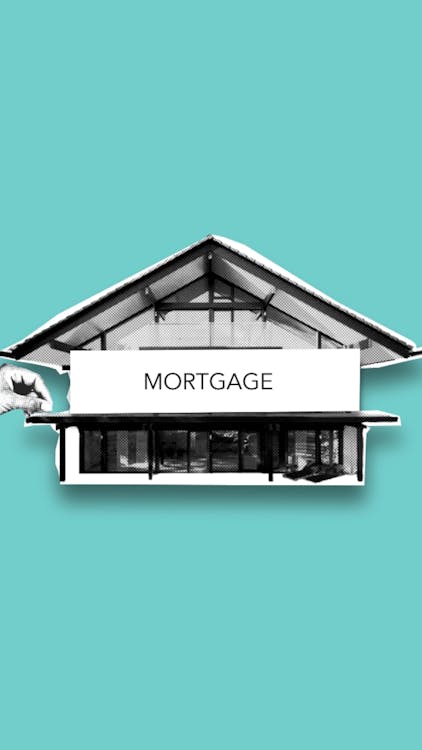
Key takeaways
- Cottage financing options include conventional mortgages, home equity loans, and specialized vacation property loans
- Down payment requirements for cottage purchases are typically higher, often 20% or more
- Interest rates for cottage loans may be slightly higher than primary residence mortgages
- Local lenders in Winnipeg and Manitoba may offer tailored cottage financing solutions
- Seasonal income from renting out your cottage can help offset financing costs
- Insurance costs for cottages can be higher due to their remote locations
- Property taxes and maintenance expenses should be factored into your financing plan
Cottage financing solutions can help turn your dream of owning a peaceful retreat in Manitoba into a reality. Whether you’re eyeing a rustic cabin on Lake Winnipeg or a modern cottage in the Whiteshell, understanding your financing options is crucial. Let’s break down the various ways you can fund your cottage purchase and what to consider when seeking financing in Winnipeg and the surrounding areas.
Understanding cottage financing basics
Financing a cottage isn’t quite the same as getting a mortgage for your primary home in Winnipeg. Lenders often view cottage purchases as higher risk, which can affect the terms and conditions of your loan. Here’s what you need to know:
Higher down payments
Most lenders in Manitoba will require a larger down payment for a cottage than they would for a primary residence. While you might be able to buy a house in Winnipeg with as little as 5% down, cottage purchases often require 20% or more. This higher down payment helps offset the perceived risk for lenders.
Interest rate differences
You might find that interest rates for cottage loans are slightly higher than those for primary residences. This is because lenders consider vacation properties to be a higher risk. However, shopping around with different Winnipeg-based lenders can help you find competitive rates.
Loan term options
Cottage loans often come with shorter terms than traditional mortgages. While you might get a 30-year mortgage on your Winnipeg home, cottage loans might be limited to 15 or 20 years. This can mean higher monthly payments but less interest paid over the life of the loan.
Types of cottage financing available in Manitoba

There are several ways to finance your cottage purchase in Manitoba. Each option has its pros and cons, so it’s important to consider which one best fits your financial situation.
Conventional mortgages
Many Winnipeg banks and credit unions offer conventional mortgages for cottage purchases. These work similarly to regular home mortgages but may have stricter requirements. You’ll likely need a strong credit score and a stable income to qualify.
Home equity loans
If you already own a home in Winnipeg, you might be able to use the equity you’ve built up to finance your cottage purchase. This can be done through a home equity loan or a home equity line of credit (HELOC). These options often offer lower interest rates than other financing methods.
Specialized vacation property loans
Some lenders in Manitoba offer loans specifically designed for vacation properties. These loans take into account the unique aspects of cottage ownership, such as seasonal use and potential rental income.
Seller financing
In some cases, the seller of the cottage might be willing to finance part of the purchase. This can be especially helpful if you’re having trouble qualifying for a traditional loan. However, be sure to have a lawyer review any seller financing agreements.
Local considerations for cottage financing in Manitoba
Financing a cottage in Manitoba comes with some unique considerations that you might not encounter when buying a property in Winnipeg proper.
Seasonal access
Many cottages in Manitoba are only accessible during certain times of the year. This can affect your financing options, as some lenders may be hesitant to finance properties that aren’t year-round accessible.
Remote locations
Cottages in remote areas of Manitoba might be harder to finance. Lenders may require additional appraisals or inspections, which can add to your costs.
Local lenders vs. big banks
Local credit unions and smaller banks in Manitoba often have more experience with cottage financing than big national banks. They might offer more flexible terms or a better understanding of the local cottage market.
Factoring in additional costs
When planning your cottage financing, it’s important to consider more than just the purchase price and mortgage payments. There are several additional costs associated with cottage ownership in Manitoba that you’ll need to factor into your budget.
Property taxes
Property taxes on cottages can vary widely depending on the location and value of the property. Some areas of Manitoba have higher tax rates for non-primary residences, which can significantly impact your annual expenses.
Insurance costs
Insuring a cottage often costs more than insuring a primary residence. This is due to factors like remote locations, seasonal use, and potential weather-related risks. Be sure to get insurance quotes before finalizing your financing plans.
Maintenance and upkeep
Cottages often require more maintenance than city homes. From clearing fallen trees to repairing winter damage, these costs can add up quickly. Your financing plan should include a buffer for these expenses.
Rental income and financing
If you’re planning to rent out your cottage when you’re not using it, this can impact your financing options. Some lenders in Manitoba may consider potential rental income when assessing your loan application. However, they may also require higher down payments or charge higher interest rates for properties intended for rental use.
Seasonal rental considerations
Many Manitoba cottages are only rentable during the summer months. Lenders will typically only consider a portion of your potential rental income when assessing your application, to account for this seasonality.
Tax implications
Renting out your cottage can have tax implications. You’ll need to report the rental income, but you may also be able to deduct certain expenses. Consider consulting with a tax professional to understand how this might affect your overall financial picture.
Comparing cottage financing options
To help you understand the different financing options available, here’s a comparison of some common methods for financing a cottage in Manitoba:
| Financing Method | Typical Down Payment | Interest Rate | Loan Term | Pros | Cons |
|---|---|---|---|---|---|
| Conventional Mortgage | 20-30% | Slightly higher than primary residence | 15-25 years | Familiar process, potentially lower rates | Higher down payment, stricter requirements |
| Home Equity Loan | Varies based on home equity | Often lower than other options | 5-30 years | Lower interest rates, use existing equity | Puts primary residence at risk |
| Specialized Vacation Property Loan | 25-35% | Higher than conventional mortgage | 10-20 years | Designed for vacation properties | Higher interest rates, larger down payment |
| Seller Financing | Negotiable | Varies widely | Negotiable | Flexible terms, easier to qualify | Potentially higher interest rates, legal complexities |
Steps to secure cottage financing in Manitoba

- Check your credit score and financial health
- Save for a substantial down payment
- Research local lenders in Winnipeg and Manitoba
- Get pre-approved for a cottage loan
- Shop for cottages within your budget
- Factor in additional costs like taxes and insurance
- Make an offer and finalize your financing
- Close on your new Manitoba cottage
The importance of local expertise
When seeking cottage financing in Manitoba, working with local experts can be invaluable. Winnipeg-based mortgage brokers and real estate agents often have in-depth knowledge of the cottage market and financing options specific to the area.
Local market knowledge
A local expert can provide insights into different cottage areas in Manitoba, helping you understand how location might affect your financing options and long-term property value.
Relationships with local lenders
Winnipeg-based mortgage brokers often have established relationships with local lenders who specialize in cottage financing. This can sometimes lead to better rates or more flexible terms.
Understanding of seasonal factors
Local experts understand the unique aspects of cottage ownership in Manitoba, such as seasonal access and weather-related risks. They can help you navigate how these factors might impact your financing options.
Preparing for the application process
Before applying for cottage financing, there are several steps you can take to improve your chances of approval and secure better terms.
Boost your credit score
A higher credit score can lead to better interest rates and loan terms. Pay down existing debts and ensure all your bills are paid on time.
Save for a larger down payment
The more you can put down, the better terms you’re likely to get. Consider setting up a dedicated savings account for your cottage down payment.
Gather necessary documents
Lenders will want to see proof of income, tax returns, and information about your assets and debts. Having these documents ready can speed up the application process.
Consider your long-term plans
Think about how you plan to use the cottage in the future. Will it be a weekend getaway, a future retirement home, or an investment property? Your plans can affect which financing option is best for you.
Navigating potential challenges
Financing a cottage in Manitoba can come with unique challenges. Being prepared for these can help you navigate the process more smoothly.
Seasonal income considerations
If you’re relying on seasonal work or income to qualify for your cottage loan, be prepared to provide additional documentation to lenders. They may want to see several years of income history to ensure stability.
Property appraisal issues
Cottages in remote areas of Manitoba can be difficult to appraise accurately. This can sometimes lead to financing challenges if the appraised value comes in lower than expected.
Zoning and land use restrictions
Some cottage areas in Manitoba have specific zoning or land use restrictions that can affect financing. Be sure to research these before making an offer on a property.
The role of mortgage insurance
Unlike with primary residences, mortgage insurance is typically not available for cottage purchases with less than a 20% down payment. This is why lenders usually require larger down payments for cottage financing.
Private mortgage insurance options
Some private lenders in Manitoba may offer mortgage insurance for cottage purchases, but this can significantly increase your costs. Be sure to carefully weigh the pros and cons of this option.
Self-insuring through higher down payments
Many cottage buyers in Manitoba choose to make larger down payments instead of seeking mortgage insurance. This can lead to better loan terms and lower monthly payments.
Financing cottage renovations
If you’re buying a fixer-upper or planning to renovate an existing cottage, you’ll need to consider how to finance these improvements.
Renovation loans
Some lenders in Winnipeg offer renovation loans that can be combined with your cottage purchase financing. These allow you to borrow based on the post-renovation value of the property.
Home equity options for existing owners
If you already own a cottage in Manitoba, you might be able to use a home equity loan or line of credit to finance renovations. This can often provide lower interest rates than other financing options.
Phased renovation approach
Consider breaking your renovation plans into phases, financing and completing each phase as funds allow. This can make the process more manageable and potentially easier to finance.
The impact of interest rates on cottage financing
Interest rates play a crucial role in cottage financing, affecting both your monthly payments and the total cost of your loan over time.
Variable vs. fixed rates
Like with primary residence mortgages, you’ll need to choose between variable and fixed interest rates for your cottage loan. Fixed rates provide stability, while variable rates might offer lower initial payments but come with more risk.
Rate shopping strategies
Don’t be afraid to shop around for the best rates. Local credit unions in Manitoba often offer competitive rates for cottage financing. Consider working with a mortgage broker who can help you compare options from multiple lenders.
The importance of pre-approval
Getting pre-approved for a cottage loan can help you understand what interest rates you qualify for and how they’ll affect your budget. It can also strengthen your position when making an offer on a property.
Long-term financial planning for cottage ownership

Owning a cottage is a long-term commitment that requires careful financial planning. Here are some factors to consider:
Budgeting for ongoing costs
Beyond your mortgage payments, you’ll need to budget for property taxes, insurance, maintenance, and potential renovations. Create a detailed budget that accounts for all these costs.
Planning for retirement
If you’re planning to use your cottage more in retirement, consider how this might affect your long-term financial plans. You might need to adjust your retirement savings strategy to account for cottage-related expenses.
Estate planning considerations
Think about how you want to handle your cottage in your estate planning. There can be complex tax implications when passing on a cottage to heirs, so it’s worth consulting with a financial advisor or lawyer.
Conclusion
Financing a cottage in Manitoba can be a complex process, but with the right preparation and knowledge, you can make your dream of cottage ownership a reality. Remember to consider all aspects of cottage financing, from down payments and interest rates to ongoing costs and long-term planning. By working with local experts and carefully weighing your options, you can find a financing solution that fits your needs and allows you to enjoy all that cottage life in Manitoba has to offer. For more information, visit out website or contact us!